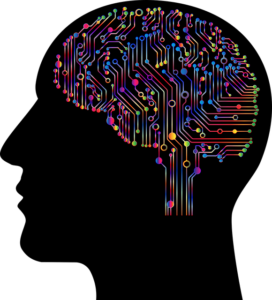Proposed artificial intelligence course sparks debate at Greensburg Salem – TribLIVE
A proposed seventh-grade course focusing on artificial intelligence is part of Greensburg Salem School District’s effort to fill a gap in computer science-related courses at its middle school.
The course was a topic of debate at last week’s school board discussion meeting, with member Emily Miller suggesting seventh graders lack the educational background for the course. She feels …….

A proposed seventh-grade course focusing on artificial intelligence is part of Greensburg Salem School District’s effort to fill a gap in computer science-related courses at its middle school.
The course was a topic of debate at last week’s school board discussion meeting, with member Emily Miller suggesting seventh graders lack the educational background for the course. She feels that it would be more appropriate as a high school elective.
The matter could also come up when the board meets Wednesday.
“While it’s probably very interesting, it’s not appropriate for 12-year-olds,” Miller said of the proposed course — “Computer Science 2: Artificial Intelligence in Our World.”
At that point in their careers, she said, Greensburg Salem students won’t have studied the Bill of Rights or have experience with persuasive writing, which she believes they’ll need to tackle course topics, including surveillance issues.
“A small part of the course would be talking about the computer science of artificial intelligence,” district Superintendent Ken Bissell said. “Most of it would be about the social implications of AI on (students’) lives.
“Our kids are already being influenced by AI programs. This course is going to give them information as to: How does that work? How was it designed? How did some of it get out of control?
“How do you recognize that, and how do you work in a world where that is going to be part of their lives, good or bad?”
Board member Robin Savage argued against delaying such technology-related subjects until high school.
“It’s too late because, when (students) get there, if they have an interest in it, then you’re playing catch-up,” Savage said. “Then we’re behind the eight ball from what other students are doing in other districts, other states, other countries. I’m not going to hold our kids back.”
“With artificial intelligence, our students interface with it on so many levels, definitely by seventh grade,” said Cassie Quigley, who is the associate department chair in the University of Pittsburgh’s Department of Teaching, Learning and Leading. “Students are really curious about these things.”
As long as it is research-based and teachers are properly trained, she said, a course related to AI can engage students in learning how to deal with such technology.
“I can see that having some understanding of a student’s rights and understanding how to form an argument is an important part of learning a topic,” she said, “but our students learn about those things in other ways, not just in school.
“They have a very nuanced view of their rights. I have yet to win an argument with a middle-schooler.”
Bissell said course outlines are being provided at no charge to Greensburg Salem through Project STEM. That’s because the district’s poverty level matches the nonprofit’s mission of providing equitable access to computer science and STEM (science, technology, engineering and math) instruction.
According to U.S. Census figures, nearly 9% of the population in Greensburg and close to 13% of those in Salem Township are living at poverty level.
Miller expressed concern that the course would have a bias in favor of AI because technology-oriented entities are providing funding to the nonprofit.
Bissell replied, “We get the basic design and layout of the curriculum, but our teachers still have autonomy to work with that.”
If the board approves the course, Bissell said, all seventh graders would be scheduled to take it. But, he said, if a parent objects, a student could skip the AI instruction and instead have an extra period of a subject such as art or music.
He said new middle school courses represent an effort to bridge the gap between introductory STEM education at the elementary level and high school courses in computer programming and computer-aided design technology.
In grades 6-8, he said, “We had a void of continuing kids in a pathway of talking about computer science.”
In a new sixth grade course, students are working with Scratch, a coding language designed for children that began in 2002 as an initiative at the MIT Media Lab.
A proposed eighth-grade course would expose students to basic programming and working with digital media.
With input from her husband, a senior software developer, Miller suggested Scratch won’t properly prepare sixth graders for later working on higher quality programming. She proposed the JavaScript programming language is among better entry points for the students.
Board member Brian Conway disagreed.
“Scratch is a good way to start,” he said. “You’re learning the logic of programming. Yes, it’s simple programming, but you learn the process for understanding what’s going on under the hood.”
Jeff Himler is a Tribune-Review staff writer. You can contact Jeff at 724-836-6622, [email protected] or via Twitter .







